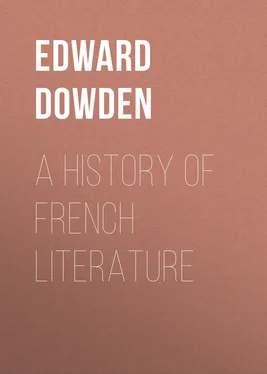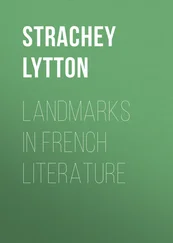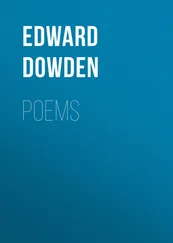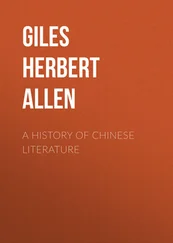Edward Dowden - A History of French Literature
Здесь есть возможность читать онлайн «Edward Dowden - A History of French Literature» — ознакомительный отрывок электронной книги совершенно бесплатно, а после прочтения отрывка купить полную версию. В некоторых случаях можно слушать аудио, скачать через торрент в формате fb2 и присутствует краткое содержание. Жанр: foreign_prose, foreign_home, Критика, Языкознание, foreign_antique, на английском языке. Описание произведения, (предисловие) а так же отзывы посетителей доступны на портале библиотеки ЛибКат.
- Название:A History of French Literature
- Автор:
- Жанр:
- Год:неизвестен
- ISBN:нет данных
- Рейтинг книги:3 / 5. Голосов: 1
-
Избранное:Добавить в избранное
- Отзывы:
-
Ваша оценка:
- 60
- 1
- 2
- 3
- 4
- 5
A History of French Literature: краткое содержание, описание и аннотация
Предлагаем к чтению аннотацию, описание, краткое содержание или предисловие (зависит от того, что написал сам автор книги «A History of French Literature»). Если вы не нашли необходимую информацию о книге — напишите в комментариях, мы постараемся отыскать её.
A History of French Literature — читать онлайн ознакомительный отрывок
Ниже представлен текст книги, разбитый по страницам. Система сохранения места последней прочитанной страницы, позволяет с удобством читать онлайн бесплатно книгу «A History of French Literature», без необходимости каждый раз заново искать на чём Вы остановились. Поставьте закладку, и сможете в любой момент перейти на страницу, на которой закончили чтение.
Интервал:
Закладка:
He is the creator of characters which are types. His giants—Grandgousier, Gargantua, Pantagruel—are giants of good sense and large benevolence. The education of Pantagruel presents the ideal pedagogy of the Renaissance, an education of the whole man—mind and body—in contrast with the dwarfing subtleties and word-spinning of the effete mediæval schools. Friar John is the monk whose passion for a life of activity cannot be restrained; his violence is the overflow of wholesome energy. It is to his care that the Abbey of Thelema is confided, where young men and maidens are to be occupied with every noble toil and every high delight, an abbey whose rule has but a single clause (since goodness has no rule save freedom), "Do what you will." Of such a fraternity, love and marriage are the happiest outcome. Panurge, for whom the suggestion was derived from the macaronic poet Folengo, is the fellow of Shakespeare's Falstaff, in his lack of morals, his egoism, his inexhaustible wit; he is the worst and best of company. We would dispense with such a disreputable associate if we could, but save that he is a "very wicked lewd rogue," he is "the most virtuous man in the world," and we cannot part with him. Panurge would marry, but fears lest he may be the victim of a faithless wife; every mode of divination, every source of prediction except one is resorted to, and still his fate hangs threatening; it only remains to consult the oracle of La Dive Bouteille. The voyaging quest is long and perilous; in each island at which the adventurers touch, some social or ecclesiastical abuse is exhibited for ridicule; the word of the oracle is in the end the mysterious "Drink"—drink, that is, if one may venture to interpret an oracle, of the pure water of wisdom and knowledge, and let the unknown future rest.
The obscenity and ordure of Rabelais were to the taste of his time; his severer censures of Church and State were disguised by his buffoonery; flinging out his good sense and wise counsels with a liberal hand, he also wields vigorously the dunghill pitchfork. If he is gross beyond what can be described, he is not, apart from the evil of such grossness, a corrupter of morals, unless morals be corrupted by a belief in the goodness of the natural man. The graver wrongs of his age—wars of ambition, the abuse of public justice, the hypocrisies, cruelties, and lethargy of the ecclesiastics, distrust of the intellectual movement, spurious ideals of life—are vigorously condemned. Rabelais loves goodness, charity, truth; he pleads for the right of manhood to a full and free development of all its powers; and if questions of original sin and divine grace trouble him little, and his creed has some of the hardihood of the Renaissance, he is full of filial gratitude to le bon Dieu for His gift of life, and of a world in which to live strongly should be to live joyously.
The influence of Rabelais is seen in the writers of prose tales who were his contemporaries and successors; but they want his broad good sense and real temperance. BONAVENTURE DES PÉRIERS, whom Marguerite of Navarre favoured, and whose Nouvelles Récréations , with more of the tradition of the French fabliaux and farces and less of the Italian manner, have something in common with the stories of the Heptaméron , died in desperation by his own hand about 1543. His Lucianic dialogues which compose the Cymbalum Mundi show the audacity of scepticism which the new ideas of the Renaissance engendered in ill-balanced spirits. With all his boldness and ardour Rabelais exercised a certain discretion, and in revising his own text clearly exhibited a desire to temper valour with prudence.
It is remarkable that just at the time when Rabelais published the second and best book of his Pantagruel , in which the ideality and the realism of the Renaissance blossom to the full, there was a certain revival of the chivalric romance. The Spanish Amadis des Gaules (1540-48), translated by Herberay des Essarts, was a distant echo of the Romances of the Round Table. The gallant achievements of courtly knights, their mystical and platonic loves, were a delight to Francis I., and charmed a whole generation. Thus, for the first time, the literature of Spain reached France, and the influence of Amadis reappears in the seventeenth century in the romances of d'Urfé and Mdlle. de Scudéry.
If the genius of the Renaissance is expressed ardently and amply in the writings of Rabelais, the genius of the Reformation finds its highest and most characteristic utterance through one whom Rabelais describes as the "demoniacle" of Geneva—JEAN CALVIN (1509-64). The pale face and attenuated figure of the great Reformer, whose life was a long disease, yet whose indomitable will sustained him amid bodily infirmities, present a striking contrast to the sanguine health and overflowing animal spirits of the good physician who reckoned laughter among the means of grace. Yet Calvin was not merely a Reformer: he was also a humanist, who, in his own way, made a profound study of man, and who applied the learning of a master to the determination of dogma. His education was partly theological, partly legal; and in his body of doctrine appear some of the rigour, the severity, and the formal procedures of the law. Indignation against the imprisonment and burning of Protestants, under the pretence that they were rebellious anabaptists, drew him from obscurity; silence, he thought, was treason. He addressed to the King an eloquent letter, in which he maintained that the Reformed faith was neither new nor tending towards schism, and next year (1536) he published his lucid and logical exposition of Protestant doctrine—the Christianæ Religionis Institutio . It placed him, at the age of twenty-seven, as leader in the forefront of the new religious movement.
But the movement was not merely learned, it was popular, and Calvin was resolved to present his work to French readers in their own tongue. His translation—the Institution —appeared probably in 1541. Perhaps no work by an author of seven-and-twenty had ever so great an influence. It consists of four books—of God, of Jesus as a Mediator, of the effects of His mediatorial work, and of the exterior forms of the Church. The generous illusion of Rabelais, that human nature is essentially good, has no place in Calvin's system. Man is fallen and condemned under the law; all his righteousness is as filthy rags; God, of His mere good pleasure, from all eternity predestinated some men to eternal life and others to eternal death; the Son of God came to earth to redeem the elect; through the operation of the Holy Spirit in the gift of faith they are united to Christ, are justified through His righteousness imputed to them, and are sanctified in their hearts; the Church is the body of the faithful in every land; the officers of the Church are chosen by the people; the sacraments are two—baptism and the Lord's Supper. In his spirit of system, his clearness, and the logical enchainment of his ideas, Calvin is eminently French. On the one side he saw the Church of Rome, with—as he held—its human tradition, its mass of human superstitions, intervening between the soul and God; on the other side were the scepticism, the worldliness, the religious indifference of the Renaissance. Within the Reforming party there was the conflict of private opinions. Calvin desired to establish once for all, on the basis of the Scriptures, a coherent system of dogma which should impose itself upon the minds of men as of divine authority, which should be at once a barrier against the dangers of superstition and the dangers of libertine speculation. As the leaders of the French Revolution propounded political constitutions founded on the idea of the rights of man, so Calvin aimed at setting forth a creed proceeding, if we may so put it, from a conception of the absolute rights of God. Through the mere good pleasure of our Creator, Ruler, Judge, we are what we are.
Читать дальшеИнтервал:
Закладка:
Похожие книги на «A History of French Literature»
Представляем Вашему вниманию похожие книги на «A History of French Literature» списком для выбора. Мы отобрали схожую по названию и смыслу литературу в надежде предоставить читателям больше вариантов отыскать новые, интересные, ещё непрочитанные произведения.
Обсуждение, отзывы о книге «A History of French Literature» и просто собственные мнения читателей. Оставьте ваши комментарии, напишите, что Вы думаете о произведении, его смысле или главных героях. Укажите что конкретно понравилось, а что нет, и почему Вы так считаете.












